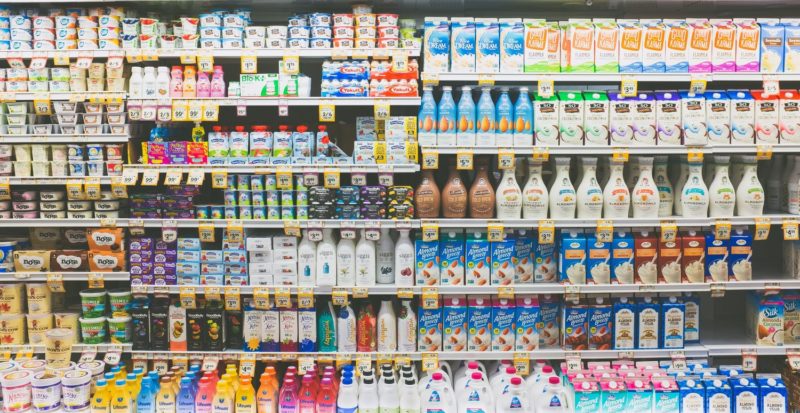Kerry McCarthy Labour MP for Bristol East
A number of constituents have contacted me express concerns about grocery shopping during the coronavirus outbreak.
The empty shelves are a result of people stockpiling and panic-buying, with press reports saying that an additional £1 billion worth of extra food has been bought by UK shoppers in the past 3 weeks. As a result, many people have been unable to get the goods they need. It is understandable some people wanted to ensure they had essentials in, or prepare for a period of isolation should they need to do so. However, people must consider the needs of others and shop responsibly, and not buy more than they require.
Food supply lines have not been disrupted by the coronavirus outbreak, nor is this expected to happen. The Government has said there is plenty of food, and that food manufacturing has increased by 50%. As there has been a drastic fall in the number of people eating out, food which would have gone to restaurants can also help meet the increased demand at shops. People’s concerns that they might be prevented from shopping should have been allayed following the Government’s announcement that crucial grocery shopping is one of the reasons people are permitted to leave their homes.
I hope it will now become apparent to people that food will remain available in stores and they will still be able to shop, and purchasing trends will return to a level which supermarkets and distribution lines can keep up with.
A number of steps are being taken to prevent hoarding to ensure the sector has the capacity to meet the increased demand.
Workers involved in the production, processing, distribution, sale and delivery of groceries are classed as key workers by the Government, and able to send their children at school so their work is not interrupted by a need for childcare. Competition law has been relaxed to allow cooperation between retailers to share information on stock, as has the rules restricting the maximum shifts time for delivery drivers.
Supermarkets are recruiting more workers to deal with the extra demand, and many retailers have acted to deter hoarding, e.g. limiting the maximum number of items one person can buy. Some supermarkets have said they will reduce the number of lines on offer, so as to concentrate on providing essentials, there will still be plenty of food to go round, (e.g. not so many fancy types of bread, but still plenty of bread). Given that many people are now being told to stay at home, what we really need now are more delivery slots. Supermarkets are already hiring more staff to make more delivery slots available, although the demand for this remains high.
It is important that key employees, such as NHS workers, and people who are especially vulnerable to coronavirus including elderly people and those with underlying health conditions are prioritised to get support.
Many stores now have reserved shopping hours, generally first thing in the morning, for the elderly and vulnerable – for example, Tesco is reserving 9 – 10 am on Mondays, Wednesdays, and Fridays for such customers and Sainsburys is allowing NHS and social care workers to shop in their supermarkets for half an hour before they open each day. You can see further details about the adjustments supermarkets are making to their opening hours here.
In terms of prioritised deliveries, online customers who are over 70 years of age or have a disability shopping at Sainsburys will have priority access to online delivery slots. I know Iceland has already followed suit, and I expect other supermarkets will do so in the coming days.
I am aware of reports there were issues of people not respecting the opening hours when it was first trialled. I hope these were a result of initial teething issues and better procedures will be in place in the future. Otherwise, the police may be required to oversee this.
I think there is still more the Government should do to ensure everyone can access the groceries they need. I have signed a cross-party letter which asks the Government to commit to the following:
- Provide reinforcement for supermarkets nationwide to prevent people overbuying
- Centrally reduce opening hours for supermarkets to give staff sufficient time to restock
- Introduce Government mandated hours of shopping for the elderly and people with underlying health conditions who are most at risk from COVID 19 (although this has been somewhat superseded by the instruction on shielding)
- Limit the quantity of staple goods and essential items people are permitted to buy, so everyone can get their fair share
- Ask the Prime Minister to address shopping habits directly in his daily press conferences
I do hope things will return to normal, and the steps being taken will ensure food supplies remain consistent. If the problem persists, I will be lobbying the Government to introduce further measures to ensure everyone can get the food they need, possibly by introducing rationing. However, as food supplies remain stable, I hope this does not have to happen.
If you or anyone you know of anyone who is struggling, please do let me know and I can put you in touch with emergency support in their local area. I am liaising with Feeding Bristol, which is working to deliver food to vulnerable people across the city. A number of mutual aid groups have also sprung up on Facebook following the outbreak of coronavirus, where members of the public have been offering/requesting assistance, including delivering groceries. Please see further details about this at this link.

